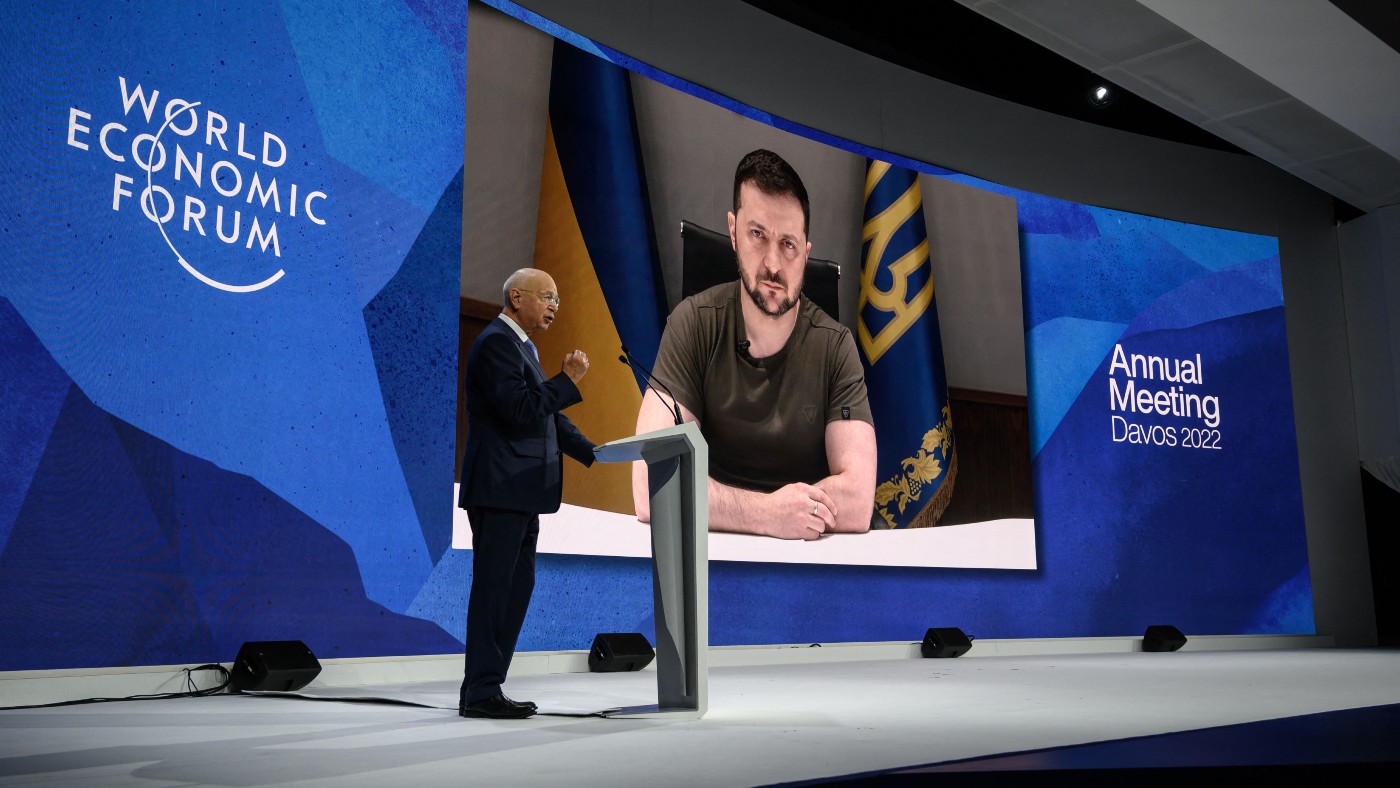The return of the World Economic Forum in Davos
Does the annual gathering of the global business elite have any relevance, when globalisation is in swift retreat?

A free daily email with the biggest news stories of the day – and the best features from TheWeek.com
You are now subscribed
Your newsletter sign-up was successful
The highlight of the last gathering of the global elite at Davos, in January 2020, “was a spat between Greta Thunberg and Donald Trump”, said Larry Elliott in The Observer. “Scant attention was being paid to reports of a new virus recently detected in China”; most of those who’d trekked to the Swiss alpine resort “were too busy virtue-signalling” about inequality and the climate emergency. A lot has happened in the past 28 months, and this week’s meeting of the World Economic Forum (delayed from January because of Omicron) had a very different feel. “Davos has always been dedicated to globalisation”, but “a combination of pandemic and Putin” has accelerated an existing trend. A big unofficial theme of this year’s shindig, therefore, was an existential question: does Davos still have any relevance in “a fragmented world where globalisation is in retreat”?
The mood among the CEO crowd was “anxious and dour”, said Andrew Ross Sorkin in The New York Times. Many comparisons were made to the 1970s (or the tech crash of 2001). There was “a sense that inflation will remain persistently high and that a recovery will take many years”. The good news is that the famous “Davos Consensus” is often wrong – a clear “contra-indicator for the future”.
Nonetheless, it was hard to laugh off the gloomy economic backdrop to this year’s meeting, said Ben Woods in The Daily Telegraph. IMF chief Kristalina Georgieva warned of a “confluence of calamities” in the world economy: from growing food protectionism to “mounting concerns that the world could split into two economic blocs”. It’s what the economist Mohamed El-Erian calls the “little fires everywhere” characterisation of the global economy.
The Week
Escape your echo chamber. Get the facts behind the news, plus analysis from multiple perspectives.

Sign up for The Week's Free Newsletters
From our morning news briefing to a weekly Good News Newsletter, get the best of The Week delivered directly to your inbox.
From our morning news briefing to a weekly Good News Newsletter, get the best of The Week delivered directly to your inbox.
This year, Davos was preoccupied with what Jane Fraser of Citigroup called “the three Rs”, said the FT. “Russia, recession and [interest] rates.” The star of the show, appearing via video link, was Ukraine’s president Volodymyr Zelenksyy, who earned an ovation after imploring business leaders to stop “all trade with the aggressor”. Conversation at Davos revolved around “deglobalisation and its discontents”, said Rana Foroohar in the same paper. The arguments are familiar: “unless we return to the mid-1990s status quo of neoliberalism, doom awaits”. Yet the economic and political consequences of lopsided globalisation “are the key reason that we are now in a period of deglobalisation”. As Davos types “continue to debate whether decoupling is possible”, business is “simply getting on with the new reality of a post-neoliberal world”, creating their own regional supply chains. “They should get out of the ivory tower.”
A free daily email with the biggest news stories of the day – and the best features from TheWeek.com
-
 6 of the world’s most accessible destinations
6 of the world’s most accessible destinationsThe Week Recommends Experience all of Berlin, Singapore and Sydney
-
 How the FCC’s ‘equal time’ rule works
How the FCC’s ‘equal time’ rule worksIn the Spotlight The law is at the heart of the Colbert-CBS conflict
-
 What is the endgame in the DHS shutdown?
What is the endgame in the DHS shutdown?Today’s Big Question Democrats want to rein in ICE’s immigration crackdown
-
 Currencies: Why Trump wants a weak dollar
Currencies: Why Trump wants a weak dollarFeature The dollar has fallen 12% since Trump took office
-
 Elon Musk’s starry mega-merger
Elon Musk’s starry mega-mergerTalking Point SpaceX founder is promising investors a rocket trip to the future – and a sprawling conglomerate to boot
-
 TikTok: New owners, same risks
TikTok: New owners, same risksFeature What are Larry Ellison’s plans for TikTok US?
-
 Will SpaceX, OpenAI and Anthropic make 2026 the year of mega tech listings?
Will SpaceX, OpenAI and Anthropic make 2026 the year of mega tech listings?In Depth SpaceX float may come as soon as this year, and would be the largest IPO in history
-
 Leadership: A conspicuous silence from CEOs
Leadership: A conspicuous silence from CEOsFeature CEOs were more vocal during Trump’s first term
-
 Ryanair/SpaceX: could Musk really buy the airline?
Ryanair/SpaceX: could Musk really buy the airline?Talking Point Irish budget carrier has become embroiled in unlikely feud with the world’s wealthiest man
-
 Powell: The Fed’s last hope?
Powell: The Fed’s last hope?Feature Federal Reserve Chairman Jerome Powell fights back against President Trump's claims
-
 Taxes: It’s California vs. the billionaires
Taxes: It’s California vs. the billionairesFeature Larry Page and Peter Thiel may take their wealth elsewhere